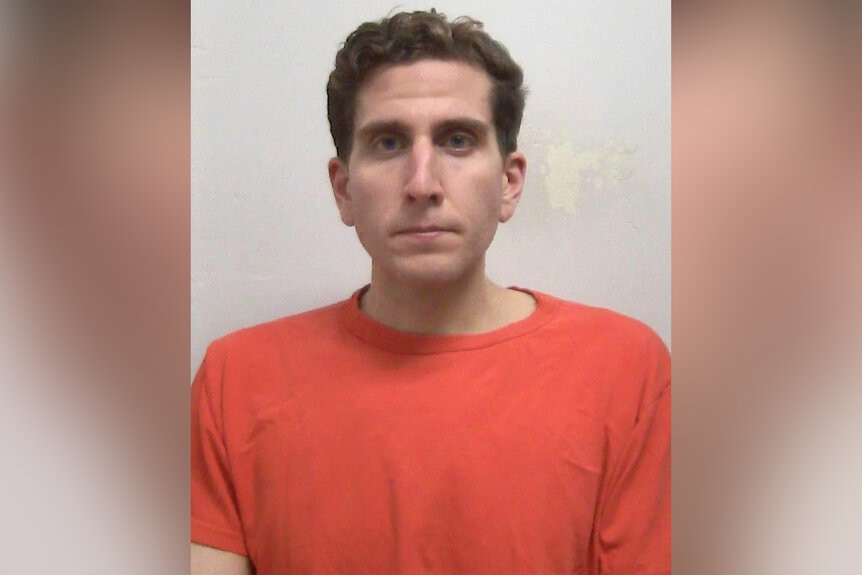Create a free profile to get unlimited access to exclusive videos, breaking news, sweepstakes, and more!
University Of Idaho Suspect Allegedly Once Wrote He Had ‘No Emotions’ And Could Do ‘Whatever I Want With Little Remorse’
Bryan Kohberger allegedly made the comments as a teenager in an online forum devoted to those suffering from a neurological condition known as visual snow.

More than a decade before Bryan Kohberger was charged with murdering four University of Idaho students, he opened up in an online forum about his struggles to connect with others, having “crazy thoughts” and feeling “no emotion,” writing that he could do “whatever I want with little remorse,” according to a new report.
“I feel like an organic sack of meat with no self worth,” he allegedly wrote in one 2011 message, according to The New York Times. “As I hug my family, I look into their faces, I see nothing, it is like I am looking at a video game, but less.”
The comments were allegedly made on a forum called Tapatalk under the username “Exarr,” which The New York Times was able to link to Kohberger through an email address he used at the time, his birthday and details provided by those who had known Kohberger.
Kohberger had turned to the online forum to discuss his struggles with the rare neurological condition, visual snow. Those afflicted with the condition have vision that’s distorted by scattered dots, much like the static on a television.
In a January 2011 message, Kohberger wrote that he began to experience symptoms of the condition in 2009 and said it had left him with “anxiety and a sense of derealization and hopelessness,” according to ABC News.
Just a few months later, in May of 2011, Kohberger allegedly opened up about his struggles with “depression, no interest in activity, constant thoughts of suicide, crazy thoughts, delusions of grandeur, anxiety, poor self image, poor social skills, NO EMOTION.”
“When I get home, I am mean to my family,” he wrote. “This started when VS did. I felt no emotion and along with depersonalization, I can say and do whatever I want with little remorse.”
High school friend Thomas Arntz told The New York Times he remembered Kohberger often talked about his vison problems while growing up in Pennsylvania.
RELATED: Suspect Charged With Murdering 'Promising And Bright' Plumber Found In California Mountains
“I know it was something that really bugged him,” Arntz said. “He was basically to the point where he was neurotic about it.”
At the time, Kohberger wrote in the forum that he had visited a neurologist, tried anti-migraine medicine and even adopted a strict diet cutting out sugar and starch in an attempt to reduce its effects on his life.
While he wrote in 2012 that he was learning to live with the condition, friends who knew him said he later turned to heroin.
Rich Pasqua recalled doing heroin with Kohberger while the pair worked together at a pizza shop in 2013 and 2014 before Kohberger went to rehab and got sober, according to the Times.
Kohberger later went on to study criminology, earning a bachelor’s degree from DeSales University in 2020 and completing his graduate degree at the school in 2022, according to the university.
At the time of his arrest, Kohberger was a teaching assistant and PhD student in criminal justice and criminology at Washington State University, which is located about 10 miles away from the University of Idaho.
Investigators believe that in the early morning hours of Nov. 13, Kohberger snuck into a Moscow, Idaho rental home and killed four of the occupants inside, according to an affidavit previously obtained by Oxygen.com. The victims — iKaylee Goncalves, 21; Madison Mogen, 21; Ethan Chapin, 20; and Xana Kernodle, 20 — were all stabbed multiple times.
Police said they were able to link Kohberger to the quadruple homicide after finding DNA on a leather knife sheath left behind on Mogen’s bed.
After Kohberger returned to Pennsylvania to spend winter break, authorities secretly collected trash from outside his family’s Albrightsville home.
Some of the items found in the trash were linked to the “biological father” of the male who left behind the DNA on the knife sheath, authorities said.
Surveillance footage also placed a car, matching the description of Kohberger’s white Hyundai Elantra, circling the neighborhood shortly before the murders and then leaving the area “at a high rate of speed” around 4:20 a.m., according to the affidavit.
Investigators believe the four college students were killed sometime between 4 a.m. and 4:25 a.m. that morning, according to the affidavit.
Police have not released a motive in the slayings.
Goncalves’ family attorney told The Times that the victims “didn’t know” Kohberger before the deadly stabbings. Chapin’s mother also told The Idaho Statesman that she did not know of any connection between her son and Kohberger.
Jason LaBar, a public defender who represented Kohberger during the extradition process back to Idaho, told NBC’s “TODAY” show shortly after his arrest that his family was shocked by the charges against him.
“They don’t believe it to be Bryan,” he said. “They can’t believe this. They’re obviously shocked.”
He called the allegations “completely out of character” for the 28-year-old.
Kohberger, who was returned to Idaho earlier this month, has yet to enter a plea to the charges against him.























